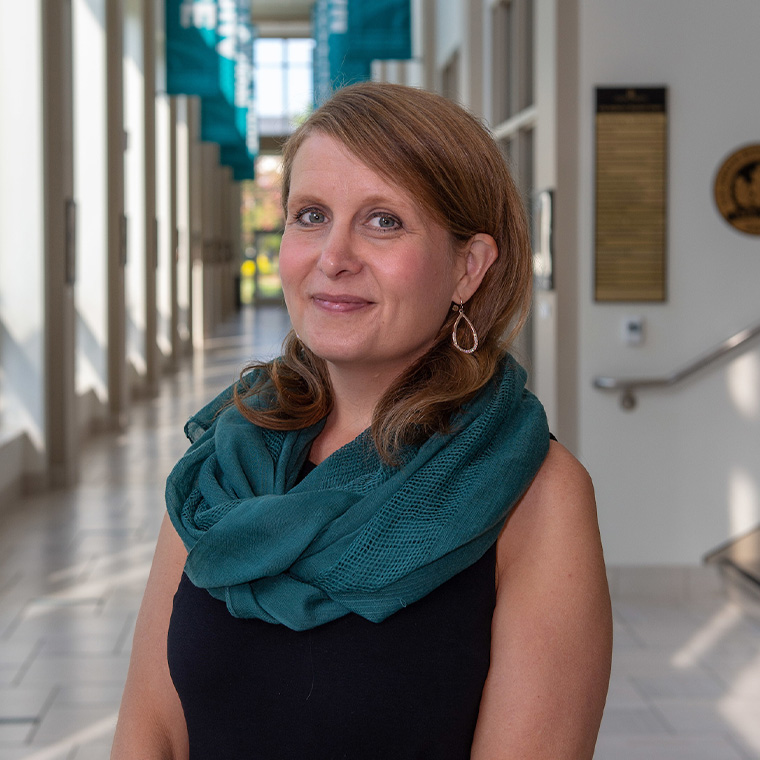CCU’s Lee Carter selected as an American Council on Education Fellow for 2024-25
“I was motivated to apply to the ACE Fellows program because of its emphasis on leading institutional transformational efforts, advancing student success, and providing a deeper understanding of the higher education enterprise,” said Carter. “The ability to learn from other campuses under the mentorship of past university presidents and ACE Fellows is truly the opportunity of a lifetime. During my fellowship year, I will be working on projects that will benefit both CCU and the institution where I will be assigned. I am honored to be entrusted with this responsibility and the opportunity to give back to an institution that has given so much to me.”
Carter has worked in higher education for more than 20 years in counseling, prevention, education, and leadership capacities. She began her career at CCU in 2012 as an associate director in what is now Counseling and Psychological Services (CAPS). She went on to create the LiveWell Office, serving as the founding director in 2017, and she has served in her current capacity since 2022. Her research has focused on incorporating wellness into the academic curriculum, social norms around health behaviors, and creating effective health messaging. Other areas of interest include organizational leadership, student success, workplace wellness, alcohol and other drug misuse prevention, and trauma effects and treatment.
Carter received a B.A. in psychology from James Madison University, an M.Ed. in counseling and human development from the University of Georgia, and a Ph.D. in educational leadership with a higher education concentration from Clemson University.
Since its inception in 1965, the ACE Fellows program has strengthened institutions in American higher education by identifying and preparing more than 2,500 faculty, staff, and administrators for senior positions in college and university leadership through its distinctive and intensive cohort-based mentorship model. More than 80% of participants have gone on after their fellowships to serve as chief executive officers, chief academic officers, other cabinet-level positions, and deans.
“The ACE Fellows Program, known for its history of success, cultivates skilled and promising leaders, driving the growth of a diverse and talented higher education leadership pipeline,” said ACE President Ted Mitchell. “Through immersive learning experiences, ACE Fellows acquire fresh perspectives and develop distinctive skills to apply upon their return to their home campuses. I am excited to witness the accomplishments of this class.”
The ACE Fellows program incorporates its signature features such as retreats, interactive and virtual learning opportunities, visits to campuses and other higher education-related organizations, and placement at another higher education institution. All these experiences are condensed into a single year, providing participants with years of on-the-job experience and skills development.
During the placement, fellows observe and work with senior officers at their host institutions, attend decision-making meetings, and focus on issues of interest that will benefit their host and nominating institutions. The year ahead will offer many opportunities for ACE Fellows to view leadership in action. Placement institutions will benefit from having an experienced leader who can lend a fresh perspective to emerging or ongoing institutional challenges. At the conclusion of the fellowship year, fellows return to their home institutions with new knowledge and skills along with a network of peers across the country and abroad.
ACE is a membership organization that mobilizes the higher education community to shape effective public policy and foster innovative, high-quality practice. As the major coordinating body for all the nation’s higher education institutions, ACE represents more than 1,600 college and university presidents and related associations.



